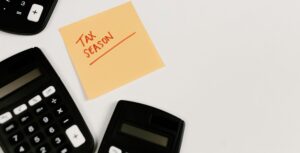What Is a Small Business Loan?
A small business loan is funding a lender provides to help a business cover startup costs, operations, inventory, or expansion expenses. These loans can come from banks, credit unions, or alternative lenders and typically require repayment with interest.
Terms vary based on the loan type, lender, and borrower’s financial health and creditworthiness.
Documents Required For A Business Loan
Personal Identification Information
This confirms the applicant’s identity and authority to act on behalf of the business. Lenders use documents like driver’s licenses or passports to verify your identity and prevent fraud. This step is foundational in establishing trust.
Business Registrations and Licenses
These verify the legal operation of your business. Examples include incorporation certificates, operating agreements, or trade permits. Lenders need assurance that the company complies with industry regulations and has the authority to operate in its jurisdiction.
Credit Report
Both personal and business credit histories are critical. Personal credit shows your financial habits and reliability, while business credit reflects the company’s financial standing. Lenders use this to evaluate risk, assess repayment ability, and decide on loan terms.
Read more: What Is A Business Credit Score And How Does It Work
Bank Statements
These provide a snapshot of financial activity over the last six months or more. Lenders review account balances, deposits, and withdrawals to gauge cash flow stability. Healthy financial activity indicates your ability to meet loan repayment requirements.
Income Statement
Also known as a profit and loss statement, this document outlines the business’s earnings, expenses, and net profit over a specific period. It highlights revenue trends and identifies whether the business generates sufficient income to repay the loan.
Budget
A well-structured budget demonstrates your financial planning skills. It includes expected revenues and expenditures over a set timeframe. Lenders assess this to ensure you’ve accounted for operating costs and loan repayments in your financial planning.
Business Plan
This comprehensive document outlines your business’s goals, strategies, and the specific purpose for the loan. It often includes market analysis, competitive positioning, and financial projections. A strong business plan reassures lenders of your vision and operational focus.
Income Tax Returns
Lenders use tax filings to verify income consistency and assess overall financial health. Personal and business tax returns from the past two to three years ensure you comply with tax obligations and provide a historical view of earnings and expenses.
Additional Documentation You Need to Submit for an SBA Loan
- SBA Form 1919 (Borrower Information Form)
- SBA Form 413 (Personal Finance Statement)
- Current profit and loss statement, along with schedules from the prior three fiscal years
- One year of projected financial statements and a detailed explanation of how your business will meet these projections
- List of affiliates and subsidiaries and their names and addresses
- Written document detailing your company’s history, challenges and why you’re requesting funding
- List of business loans you’ve applied for
- Proof of equity, if you’re purchasing an existing business
Tips For Improving Your Chances Of SBA Loan Approval
What Information Is Needed To Apply For A Small Business Loan?
- Business Details – Provide the legal name, structure (e.g., LLC, sole proprietorship), tax ID, and industry type. Include the date established and physical address. These basics confirm your business’s legitimacy.
- Personal Identification – Submit a government-issued ID, such as a driver’s license or passport, to ensure the applicant is authorized to act on behalf of the business.
- Loan Purpose and Amount – Clearly state why you need the loan and how much funding you seek. Specify whether it’s for equipment, working capital, expansion, or another purpose.
- Financial Statements – Include profit and loss statements, balance sheets, and cash flow summaries. These documents showcase your business’s financial health and ability to manage loan repayments.
- Business and Personal Credit Scores – Lenders review your personal and business credit histories to assess reliability. A strong score reflects lower risk and increases your chances of approval. If your credit score is not high, find out how to build business credit for a small business.
- Tax Returns – Provide two to three years of personal and business tax filings. These demonstrate income consistency and compliance with tax regulations.
- Bank Statements – Submit recent statements, typically from the past six months. These reveal cash flow patterns and liquidity.
- Business Plan – A well-structured plan outlines your objectives, strategies, and financial projections. Lenders rely on this to understand how the loan will support business growth.
- Collateral Information – If required, describe the assets you’re offering as collateral. Include details such as type, value, and ownership status.
- Ownership and Management Background – Share resumes or profiles of key stakeholders. Highlight relevant experience to reassure lenders of the business’s management strength.
- Existing Debt Obligations – Provide a detailed list of current loans, including amounts owed, lenders, and repayment schedules. This helps lenders evaluate your capacity for additional debt.
What Disqualifies You From Getting An SBA Loan?
You can get disqualified for an SBA loan if your business operates in prohibited industries, such as gambling, lobbying, or pyramid schemes. Poor credit scores, insufficient collateral, or a lack of demonstrated ability to repay the loan can lead to rejection.
Incomplete or inaccurate application documents may disqualify applicants. Personal or business bankruptcies, unresolved tax issues, or delinquent federal debts further reduce eligibility.
Additionally, if the business is not U.S.-based or fails to meet SBA size standards, it won’t qualify. Misuse of prior SBA funds or dishonest disclosures can result in automatic disqualification.
Do You Need Proof Of Income For A Business Loan?
Yes, you need proof of income for a business loan. Lenders evaluate your ability to repay the loan by reviewing financial documents such as tax returns, profit and loss statements, and bank statements.
What Do Banks Need To See For A Business Loan?
Banks require financial statements, credit history, tax returns, and recent bank statements to assess repayment ability. A clear loan purpose, a solid business plan, and collateral (if needed) demonstrate credibility. Legal documentation, including registrations and licenses, confirms legitimacy.
What Do I Need To Present To A Bank For A Business Loan?
For a business loan, present financial statements, tax returns, credit reports, and recent bank statements to show stability. If required, provide a clear loan purpose, a detailed business plan, and collateral details. Include legal documents like registrations and licenses to confirm legitimacy.
Read more: Types of Small Business Loans.




